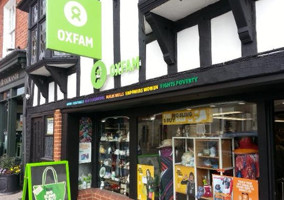Charity shops could become "clogged up" with unsellable stock after lockdown, placing millions of pounds of the sector's income at risk, according to the Textile Recycling Association (TRA).
TRA warned that charities may be hit by the collapse in the global market for rag, the system for selling on leftover clothes and fabrics for recycling overseas.
That market has seized up because of the coronavirus pandemic, the TRA said, with many countries no longer accepting rag exported from the UK. People employed in the trade overseas are also staying away from work until the pandemic is over.
Analysis in last year’s Charity Shops Survey, conducted by Charity Finance magazine, shows that rag is worth millions of pounds every year to UK charities. The British Heart Foundation made £17m by selling rag through its charity shops, according to the analysis, with Oxfam GB making £4m and Age UK making nearly £3m.
'No markets for this used clothing'
Alan Wheeler, director of the TRA, told Civil Society News that charities are likely to see a high level of donations once shops re-open, when people return to the high street after weeks isolating indoors. This is likely to create problems with stock amounts.
He said: “Half of all charity shop donations are not sold to the public, but eventually go out the back door into textile recycling. But right now, there is no market for that.
“Before the lockdown a charity shop could expect to receive hundreds of pounds per tonne for this clothing. At the moment there are no markets for this used clothing, so its value is basically zero.”
As a result, charity staff will not be able to empty their shops of surplus goods, Wheeler warned.
He said: “One effect for charity shops is that back rooms will be clogged up pretty quickly. There will be nowhere for the produce to actually go.”
Patience
Wheeler also predicted that some companies dealing with shipping and storing recycled textiles “will go under in the coming months”, creating further problems for charities trying to move on unsold stock.
He added: “Charities will need to be patient with the [recycling] sector. We might say that we can’t take any textiles at the moment, but the sector will be trying to get up and running again as quickly as possible.”
CRA: One of many challenges
Robin Osterley, chief executive of the Charity Retail Association, acknowledged that excess stock is likely to pose a challenge for managers when charity shops open for business again once lockdown lifts, but was optimistic that charities will find a way to reduce any pressures this causes.
Osterley said: “Clearly charity shops are going to face many challenges as they start to reopen across the country. The ability to sell their surplus stock to recyclers is one of those challenges, especially as we expect donations to be substantially increased for a while.
“However, our members are very innovative and creative, as are the majority of recyclers, and we are confident that, given sufficient communication between charity shops and their recycling partners, the risks can be mitigated in the relatively short term.”
The Charity Shops Survey is the authoritative study of trends and issues affecting the charity retail sector. Find out more information and purchase your copy today!
Related articles












